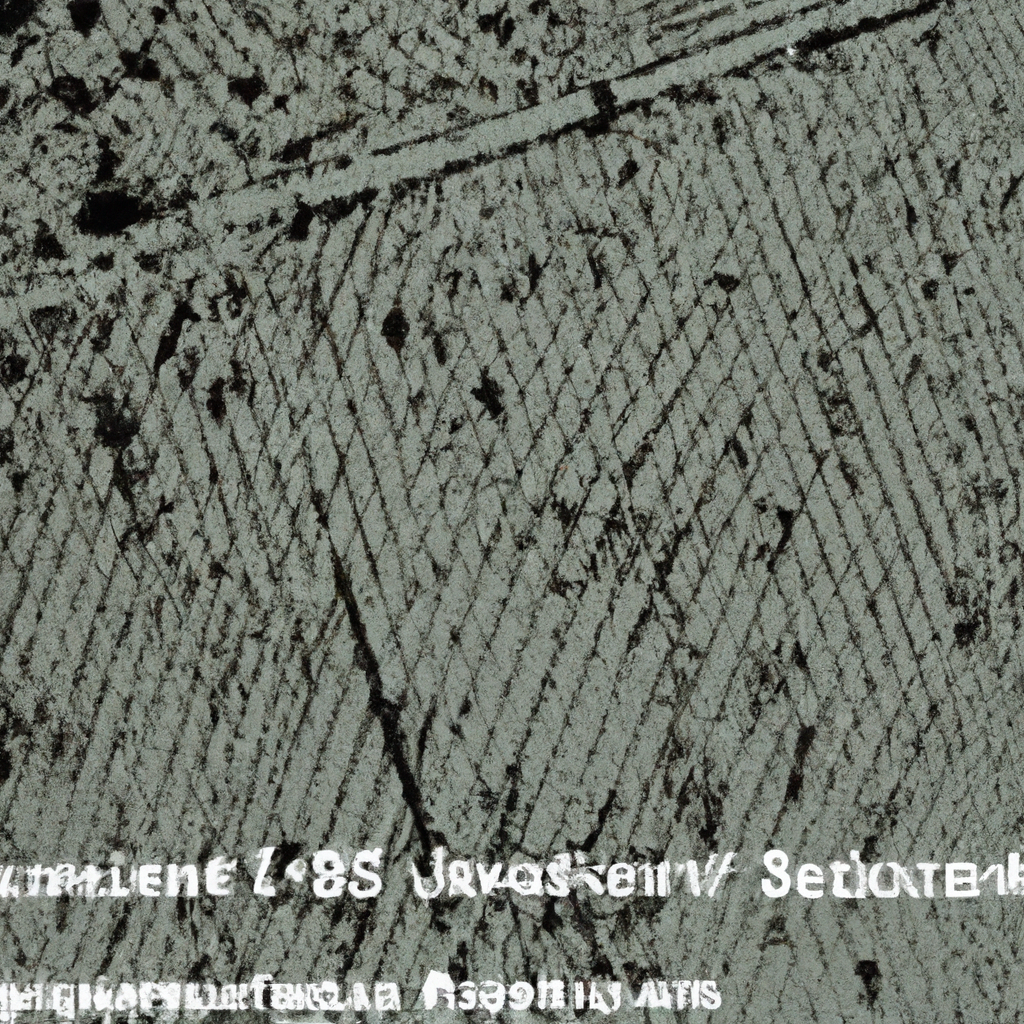Imagine walking through the bustling streets of downtown Chicago, taking in the sights and sounds of the city that never sleeps. Amidst the towering skyscrapers and vibrant atmosphere, there is an invisible threat lurking – mold. Mold is a common problem that many residents and business owners in downtown Chicago face, and it can have serious health implications if left unchecked. In this article, we will explore the importance of mold inspection in downtown Chicago and how it can help ensure the safety and well-being of you and your loved ones. So, grab a cup of coffee and join us as we shine a light on this hidden menace and how to protect yourself from it.
The Importance of Mold Inspection
Whether you’re a homeowner, a property buyer, or a renter, understanding the importance of mold inspection is crucial. Mold not only poses risks to your health but can also cause significant damage to your property. In this article, we will dive into the various aspects of mold inspection in downtown Chicago, outlining what mold is, the factors that promote its growth, the health risks associated with exposure, and the impact it can have on property value.
Understanding What Mold Is
Mold is a type of fungus that thrives in warm, damp environments. It reproduces through spores that can be easily airborne, making it capable of spreading rapidly. Mold can appear in various colors, including black, green, white, or even orange. While some molds are harmless, others can be toxic and pose serious health risks.
Factors that Promote Mold Growth
Mold requires specific conditions to grow and thrive. These include moisture, suitable temperatures, and organic matter. In downtown Chicago, the humid climate and older buildings prone to leaks and water damage create an ideal environment for mold growth. The presence of high humidity levels, water leaks, condensation, and poor ventilation can all contribute to mold infestations.
Health Risks Associated with Mold Exposure
Exposure to mold can have detrimental effects on your health. Mold spores can trigger allergies, asthma attacks, and other respiratory problems. Prolonged exposure to toxic mold, such as Stachybotrys (commonly known as black mold), can lead to more severe health issues, including respiratory infections, neurological symptoms, and even organ damage. It is essential to address mold issues promptly to protect your well-being.
Impact of Mold on Property Value
Mold can significantly impact the value of your property. Its presence can lead to extensive damage, including the deterioration of building materials, structural issues, and unpleasant odors. Additionally, mold infestations can raise concerns for potential buyers or tenants, leading to difficulties in selling or renting the property. To protect the value of your investment, it is crucial to address mold issues promptly and provide buyers or renters with peace of mind.
When and Why You Need a Mold Inspection in Downtown Chicago
Knowing when and why to schedule a mold inspection in downtown Chicago can save you from potential health hazards and property damage. Here are some key situations where a mold inspection is necessary:
Purchasing New Property
If you’re in the process of buying a property in downtown Chicago, it is essential to have a mold inspection before finalizing the purchase. Mold can be lurking behind walls, under carpets, or in hidden areas that are not immediately visible. A thorough mold inspection will uncover any hidden issues and allow you to negotiate repairs or remediation with the seller.
After Renovations or Repairs
Undertaking renovations or repairs in your downtown Chicago property can disrupt building materials and create conditions that promote mold growth. Increased moisture levels, construction debris, and inadequate ventilation during the process can all contribute to mold infestations. After completing any renovations or repairs, it is wise to schedule a mold inspection to ensure that mold hasn’t taken hold during the construction process.
Signs of Water Damage
Water damage is a common trigger for mold growth. If you notice signs of water damage, such as water stains, bulging walls, or musty odors, it is crucial to have a mold inspection. Even if you cannot visibly detect mold, hidden colonies may be thriving behind walls or in other concealed areas. A mold inspection will identify the extent of the damage and any associated mold issues.
Visible Mold Growth
If you notice visible mold growth in your downtown Chicago property, whether it’s on walls, ceilings, or floors, it is a clear indication that there are underlying moisture issues that need to be addressed. Visible mold growth should never be ignored, as it usually indicates a more significant problem. A mold inspection will assess the extent of the infestation and provide actionable steps for remediation.
Persistent Health Issues
If you or your family members are experiencing persistent health issues that seem to worsen when at home, mold exposure may be the root cause. Symptoms such as coughing, sneezing, itchy eyes, or respiratory discomfort should not be ignored. A mold inspection can identify the presence of mold and help you take the necessary measures to improve indoor air quality and protect your health.

The Mold Inspection Process
The mold inspection process involves several key steps to ensure a thorough assessment of the property. When you hire a professional mold inspector in downtown Chicago, you can expect the following:
Initial Assessment
During the initial assessment, the mold inspector will conduct a visual inspection of the property, both indoors and outdoors. They will look for signs of water damage, visible mold growth, and areas with high humidity or condensation. The inspector may use specialized tools such as moisture meters or thermal imaging cameras to detect hidden moisture issues.
Sampling and Testing
To determine the type and concentration of mold present, the inspector may collect samples from different areas of the property. These samples may include air samples, surface swabs, or bulk material samples. They will be sent to a laboratory for analysis. Air samples can help identify mold spores in the air, while surface samples can provide information about the extent of mold growth on specific surfaces.
Interpreting the Results
Once the laboratory analysis is complete, the mold inspector will interpret the results based on the types and concentrations of mold identified. They will provide you with a detailed understanding of the severity of the infestation and the potential health risks associated with the specific types of mold present.
Providing a Detailed Report
The mold inspector will compile all the findings, results, and recommendations into a detailed report. This report will outline the areas of concern, the extent of the mold infestation, and the necessary steps for remediation. It should also include recommendations for preventing future mold issues.
Mold Types Commonly Found in Downtown Chicago
In downtown Chicago, several mold types are commonly encountered during mold inspections. Understanding these mold types can help you better comprehend the potential health risks and the severity of the infestation. Here are some molds often found in downtown Chicago:
Stachybotrys (Black Mold)
Stachybotrys, commonly referred to as black mold, is one of the most well-known toxic molds. It appears black or dark green and thrives in areas with constant moisture, particularly after water damage. Stachybotrys produces mycotoxins that can cause serious health issues, such as allergic reactions, asthma attacks, and even neurological symptoms.
Aspergillus
Aspergillus is a common mold found in both indoor and outdoor environments. It can vary in color, appearing as green, yellow, white, or even brown. While some species of Aspergillus are harmless, others can cause respiratory infections, particularly in individuals with weakened immune systems.
Penicillium
Penicillium is another common mold found in both indoor and outdoor environments. It can appear blue or green and often spreads rapidly. Penicillium can cause allergic reactions, respiratory issues, and even contribute to the development of asthma.
Cladosporium
Cladosporium is a mold commonly found outdoors but can also make its way indoors. It appears black or dark green and can thrive on various materials, including fabrics, carpets, and wood. Cladosporium can trigger allergies, asthma attacks, and other respiratory problems.
Alternaria
Alternaria is a mold commonly found in areas with high humidity and water damage. It can appear dark green or black and often grows on damp building materials or in kitchens and bathrooms. Exposure to Alternaria can cause allergic reactions and exacerbate existing respiratory conditions.

Professional Mold Inspection versus DIY
While DIY mold testing kits may seem like a cost-effective option, there are significant limitations when compared to hiring a professional mold inspector in downtown Chicago.
Limitations of DIY Mold Testing Kits
DIY mold testing kits typically involve collecting samples using adhesive strips or air cassettes and sending them to a laboratory for analysis. However, these kits often lack the accuracy and reliability of professional mold inspections. They may provide you with limited information about the presence of mold in your property without identifying the specific types or concentrations. Additionally, DIY kits do not assess the underlying causes of the mold growth or provide recommendations for remediation.
Advantages of Hiring a Professional Mold Inspector
Hiring a professional mold inspector offers numerous advantages. They have the knowledge, experience, and specialized tools to conduct a thorough and accurate assessment of your property. Professional mold inspectors can identify the specific types of mold present, assess the extent of the infestation, and provide detailed recommendations for remediation. They can also help you understand the potential health risks and offer guidance on preventing future mold issues.
Importance of Experience and Knowledge in Mold Identification and Assessment
Identifying and assessing mold properly requires experience and knowledge. Different mold types require specific approaches for effective remediation. Professional mold inspectors have a deep understanding of mold species and their associated health risks. They can accurately identify the species present in your property and determine the severity of the infestation. This expertise ensures that the necessary steps for remediation are taken promptly and effectively.
What to Expect After a Mold Inspection
Once the mold inspection is complete, it is essential to understand the next steps and what to expect. Here are the key aspects to consider:
Understanding the Mold Inspection Report
The mold inspection report is a crucial document that summarizes the findings of the inspection. It should provide a clear overview of the areas of concern, the extent of the mold infestation, and the specific types of mold identified. The report should also include recommendations for remediation and preventing future mold issues. It is important to thoroughly review the report and seek clarification if needed.
Steps to Take If Mold is Found
If mold is found during the inspection, it is essential to take immediate action. Depending on the severity of the infestation, professional mold remediation may be required. Hiring a reputable mold remediation company can ensure the safe and effective removal of the mold. It is crucial to address the underlying causes of the mold growth to prevent reoccurrence.
Mold Remediation Process
The mold remediation process involves several steps to safely remove the mold and restore the affected areas. This process may include containment of the affected areas to prevent the spread of spores, removal and disposal of contaminated materials, thorough cleaning and disinfection, and addressing the underlying moisture issues. Professional mold remediation companies have the necessary expertise and equipment to carry out these steps effectively.
Preventing Future Mold Issues
Prevention is key to avoiding future mold problems. After the mold remediation process, it is crucial to address any underlying moisture issues, improve ventilation, and maintain proper humidity levels. Regular inspections and maintenance can help identify and address potential issues before they escalate into mold infestations. Proper cleaning practices, such as promptly drying any water-damaged areas and reducing clutter, can also help prevent mold growth.

The Cost of Mold Inspections in Downtown Chicago
When considering a mold inspection in downtown Chicago, it is important to be aware of the factors that influence the cost, the average cost range, and whether it is worth the investment.
Factors Influencing the Cost of Mold Inspection
The cost of mold inspection can vary depending on several factors, including the size and complexity of the property, the number of samples collected, and the types of analysis required. Additionally, factors such as the urgency of the inspection and the reputation of the mold inspection company may also impact the cost.
Average Cost for Mold Inspection
On average, mold inspections in downtown Chicago can range from $300 to $800. This cost typically includes the initial assessment, sampling, laboratory analysis, and the detailed report. However, it is important to obtain quotes from multiple mold inspection companies to ensure you are getting a fair price for the services provided.
Is Mold Inspection Worth the Investment?
While mold inspections do come with a cost, they are worth the investment for several reasons. A thorough mold inspection can help identify hidden mold issues, assess the severity of the infestation, and provide recommendations for remediation. Addressing mold problems early on can prevent further damage to your property, protect your health, and potentially save you significant costs in the long run.
Options for Free or Low-Cost Mold Inspection
In some cases, free or low-cost mold inspections may be available. Local health departments or mold awareness organizations may offer assistance for individuals who cannot afford a professional mold inspection. It is recommended to reach out to these organizations to determine if such options are available in your area.
Choosing a Reliable Mold Inspection Company in Downtown Chicago
Selecting a reliable mold inspection company in downtown Chicago is crucial to ensure an accurate assessment of your property and trustworthy recommendations for remediation. Here are some factors to consider when choosing a mold inspection company:
What to Look for in a Mold Inspection Company
Look for a mold inspection company with a solid reputation and a proven track record. The company should have experience in conducting thorough inspections, identifying mold types, and providing detailed reports. It is also important to ensure that the company uses accredited laboratories for sample analysis.
Certifications and Training
Certifications and training are important indicators of a mold inspection company’s expertise. Look for certifications such as Certified Mold Inspector (CMI) or Certified Indoor Environmentalist (CIE). These certifications demonstrate that the professionals have received formal training and have the necessary knowledge to perform accurate mold inspections.
Insurance and Liability
Ensure that the mold inspection company has liability insurance to protect you in case of any damages or errors during the inspection process. Additionally, verify that the company follows industry-standard safety protocols to protect the health and well-being of both their employees and your property.
Customer Reviews and Reputation
Read customer reviews and testimonials to gain insight into the mold inspection company’s reputation. Positive reviews and satisfied customers are indicators of a reliable and reputable company. Consider reaching out to references provided by the company to gather more information about their services.

Understanding Mold Regulations in Chicago
Being aware of mold regulations in Chicago is important to ensure compliance with industry standards and protect yourself from legal complications. Here are some key regulations to understand:
Federal Mold Inspection Standards
While there are no federal regulations specifically governing mold inspections, various federal agencies, such as the Environmental Protection Agency (EPA) and the Centers for Disease Control and Prevention (CDC), provide guidelines and recommendations for mold assessment and remediation. These guidelines should be considered during the mold inspection process.
Chicago Building Code on Mold Control
The Chicago Building Code provides regulations for mold control in residential and commercial properties. It outlines requirements for maintenance, ventilation, and moisture control to prevent mold growth. Familiarize yourself with these regulations to ensure your property meets the necessary standards.
Occupational Safety and Health Administration (OSHA) Guidelines on Mold
OSHA provides guidelines for occupational exposure to mold in the workplace. While primarily aimed at employers and employees, these guidelines can give valuable insights into the potential health risks associated with mold exposure and the recommended safety practices for mold inspections and remediation.
Addressing Frequently Asked Questions About Mold and Mold Inspection
To address common queries about mold and mold inspection, here are some frequently asked questions and their answers:
Can I Clean Mold Myself?
Small areas of mold growth that cover less than 10 square feet can often be safely cleaned by homeowners. However, it is essential to take proper precautions, such as wearing protective gear and ensuring proper ventilation. For larger or more severe mold infestations, it is recommended to hire a professional mold remediation company.
What Are the Signs That I Have Mold?
Common signs of mold include musty odors, visible mold growth, water stains, peeling or bubbling paint, and allergic reactions such as coughing, sneezing, or headaches. If you suspect mold, it is best to have a professional mold inspection to accurately identify the presence of mold.
How Long Does a Mold Inspection Take?
The duration of a mold inspection can vary depending on the size and complexity of the property. On average, a thorough mold inspection can take anywhere from 1 to 3 hours. However, it is important to prioritize accuracy over speed, as rushing the inspection process may lead to overlooked areas or inaccurate results.
Is Mold Covered by Homeowners Insurance?
Mold coverage in homeowners insurance policies can vary. While some policies may cover mold remediation under certain circumstances, such as water damage caused by a burst pipe, others may exclude mold-related claims altogether. It is essential to review your insurance policy and consult with your insurance provider to understand the extent of coverage for mold issues.
In Conclusion,
Understanding the importance of mold inspection, the process involved, and the potential health risks associated with mold exposure is crucial for every homeowner or property buyer in downtown Chicago. By being proactive and addressing mold issues promptly, you can protect your health, maintain property value, and create a safe living environment free from harmful mold infestations. Remember to hire a reliable mold inspection company that meets industry standards and can provide you with accurate assessments and recommendations for remediation.
